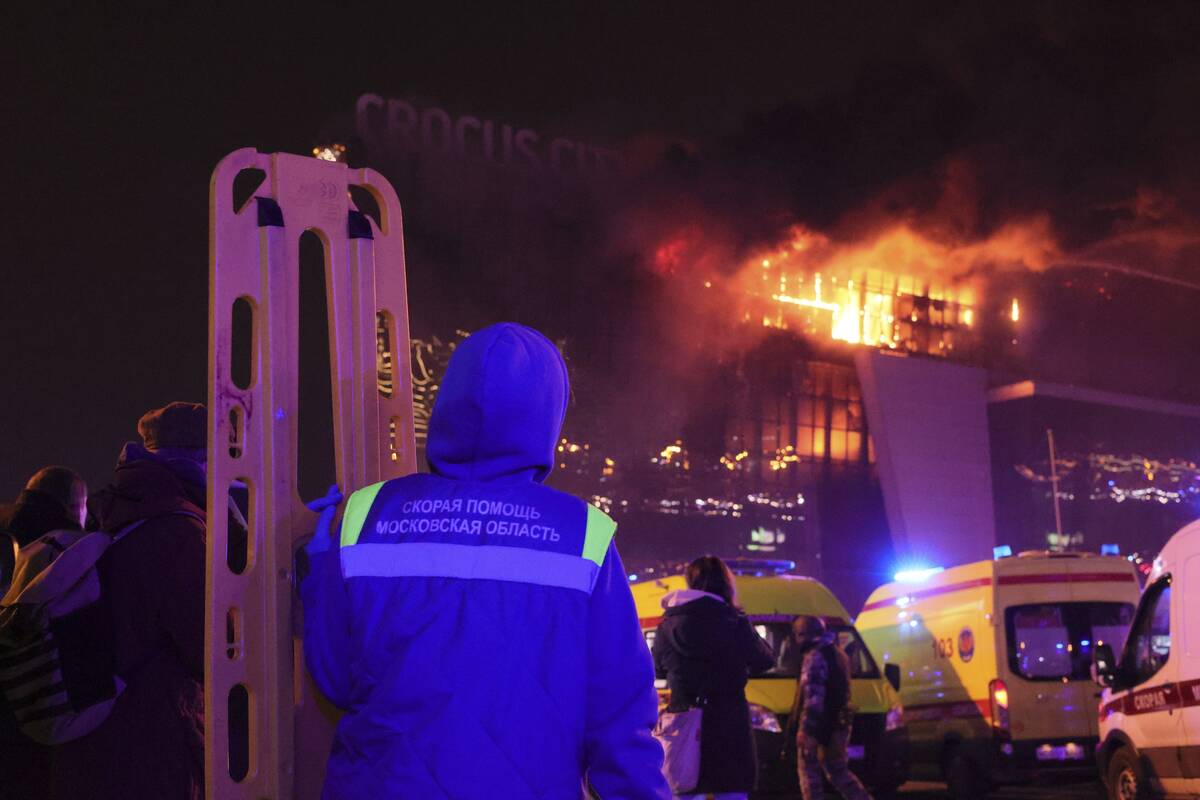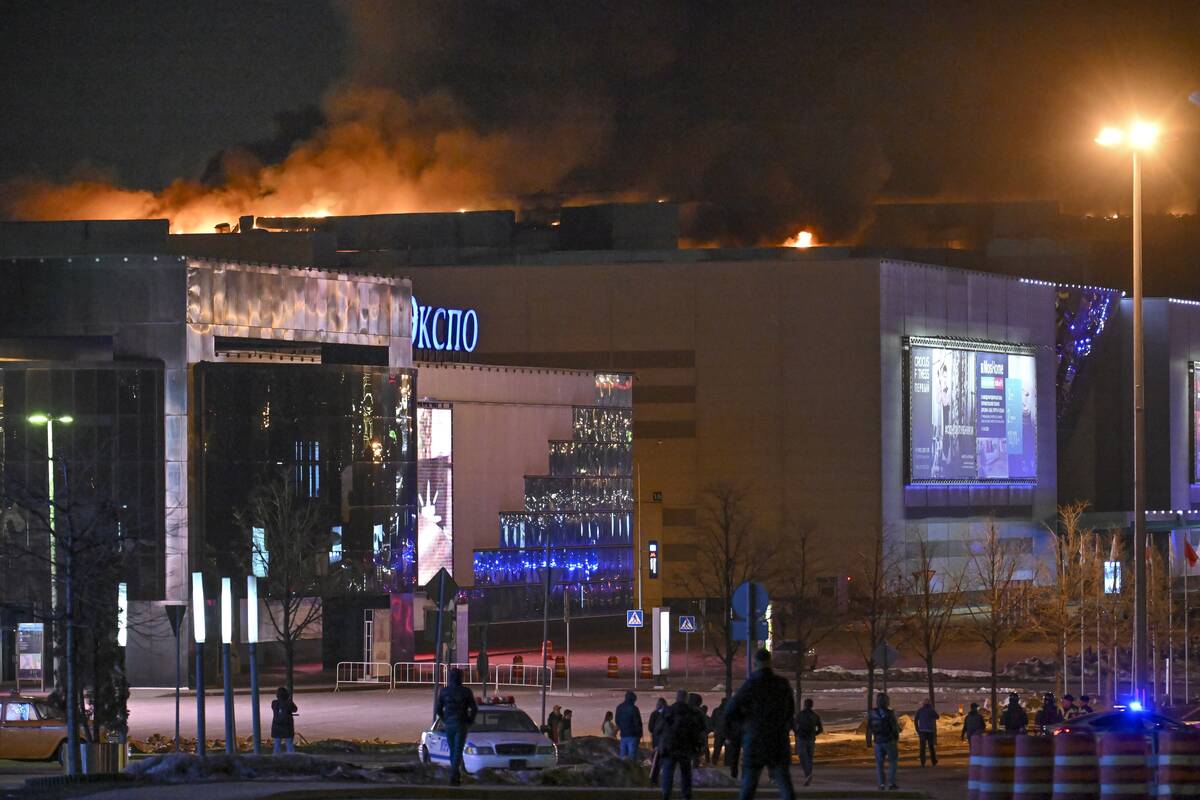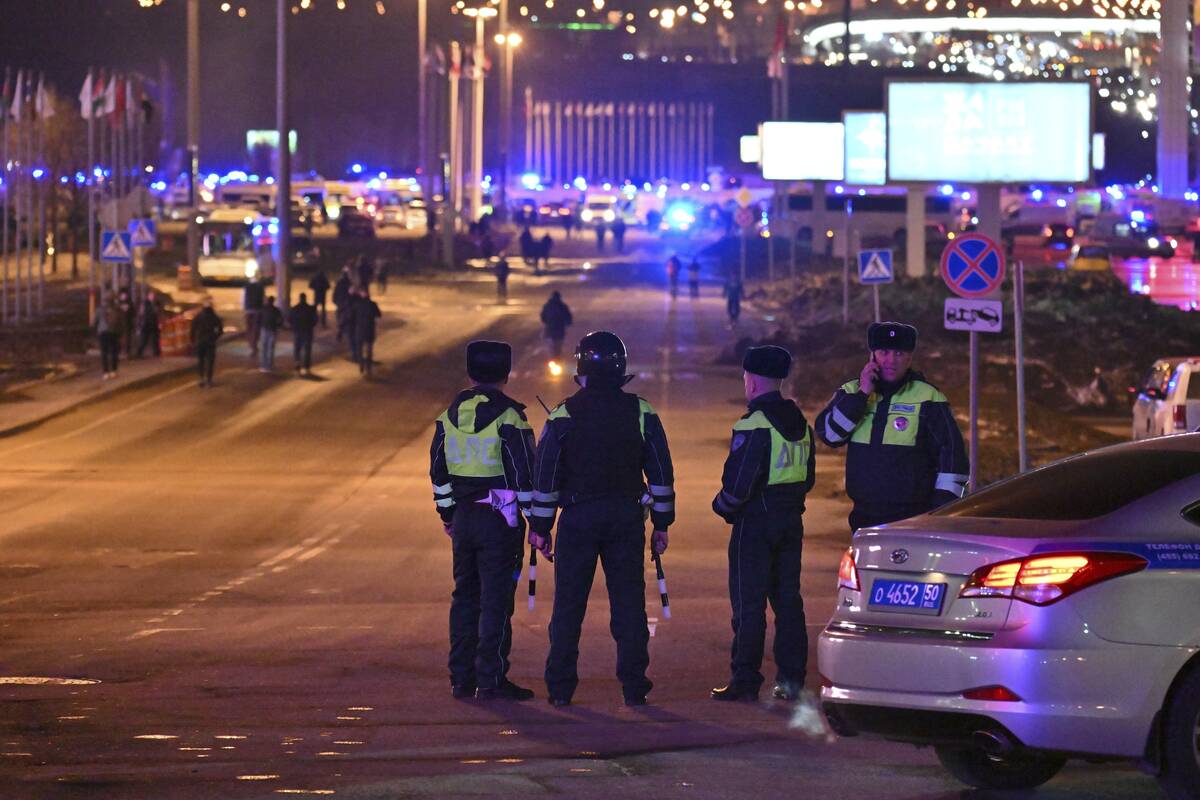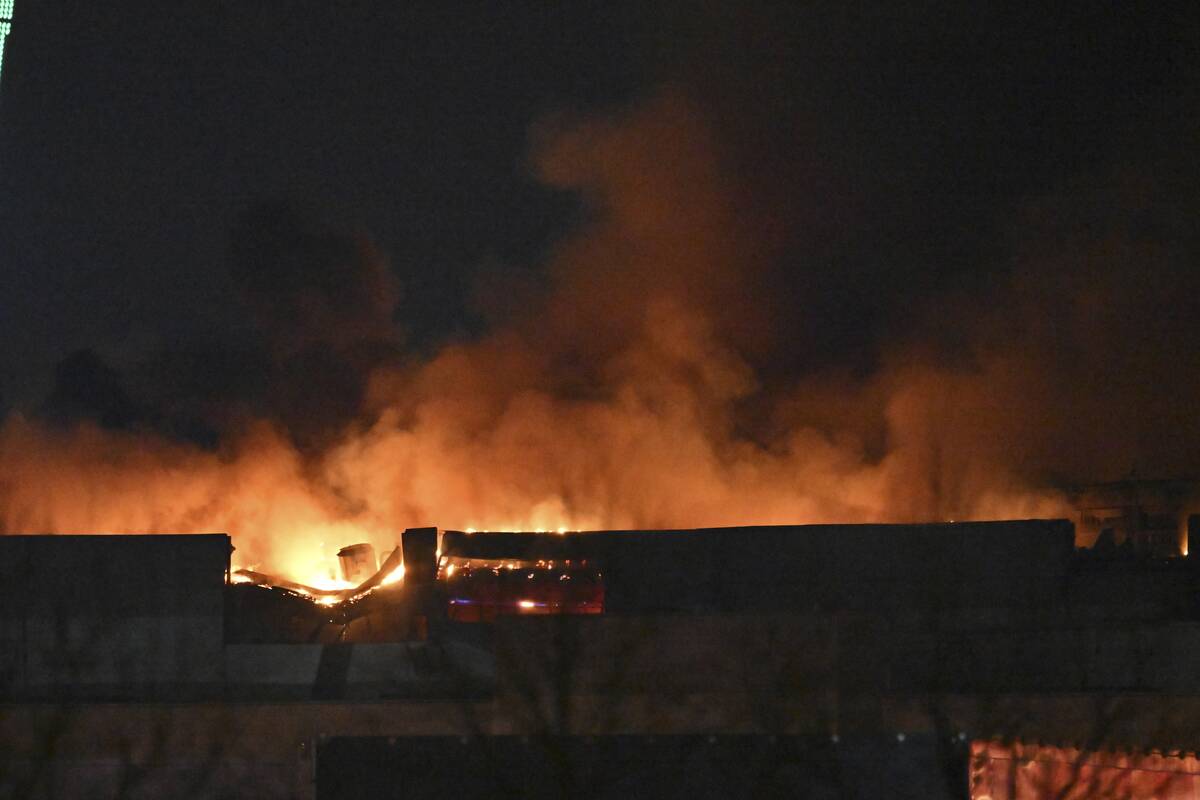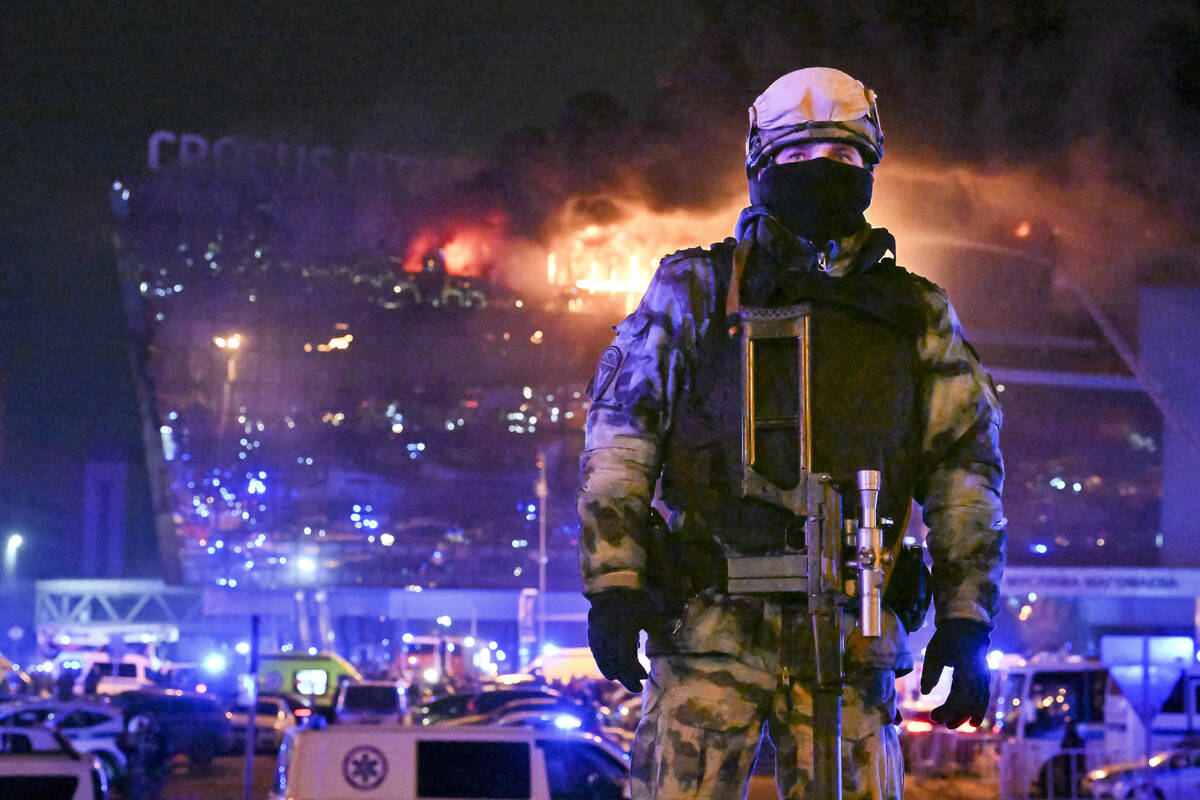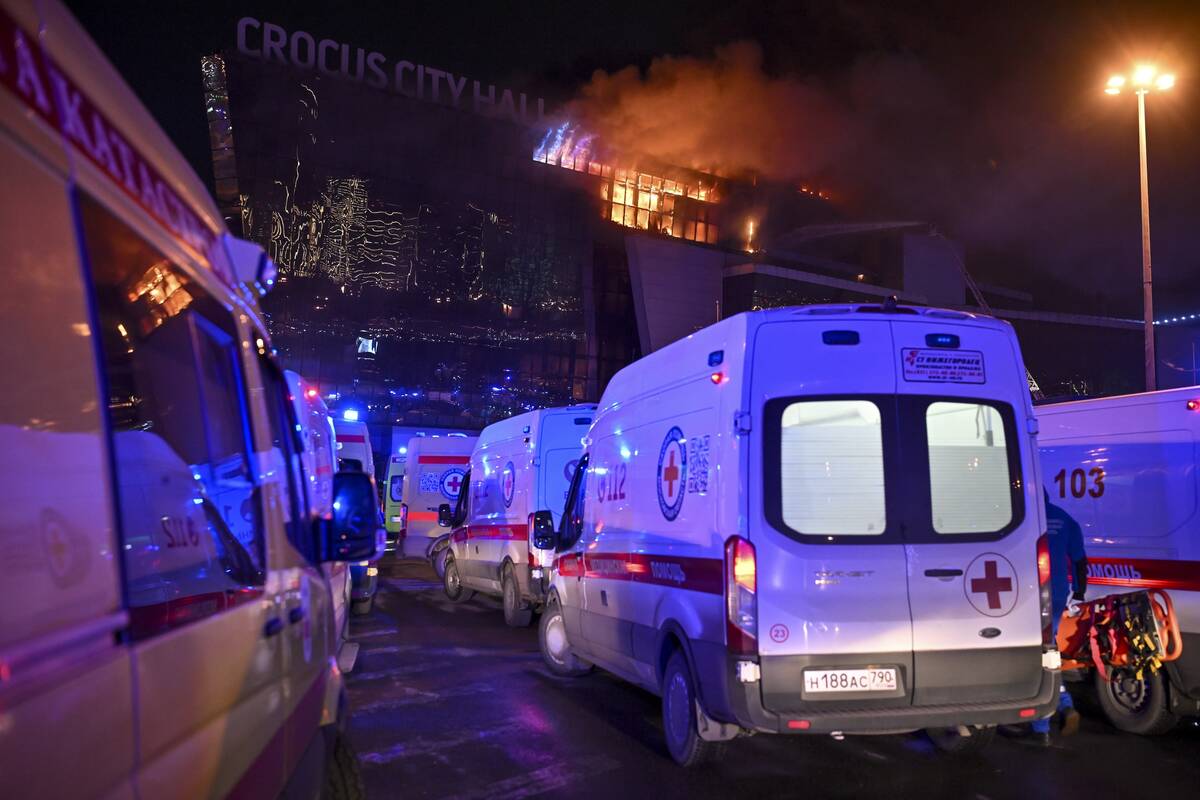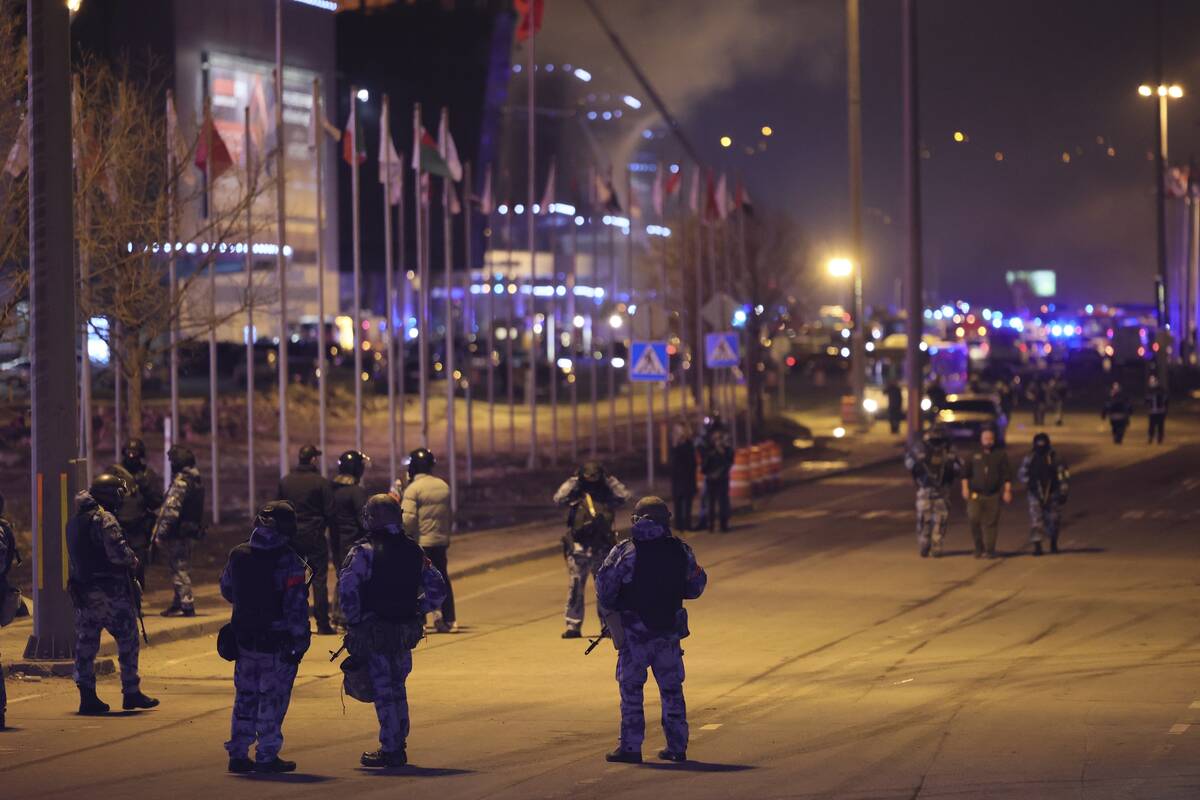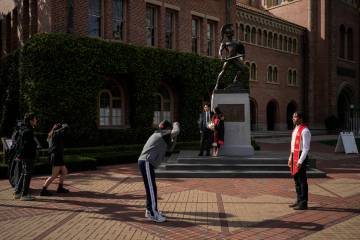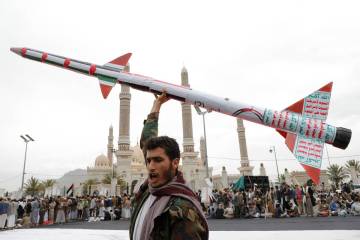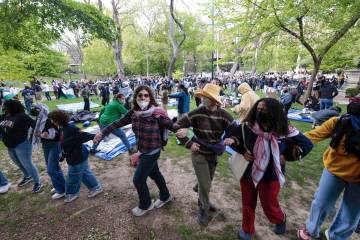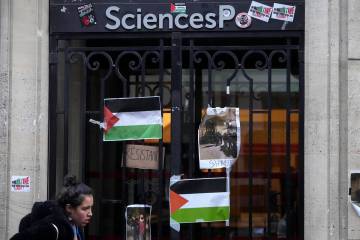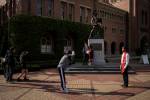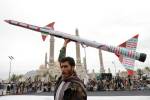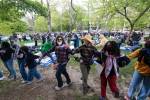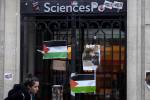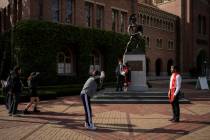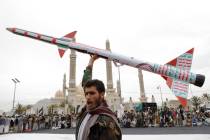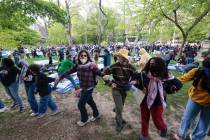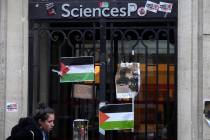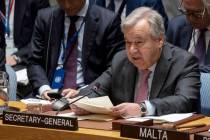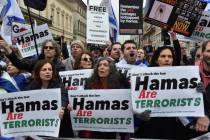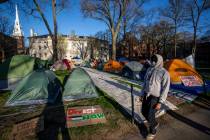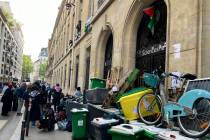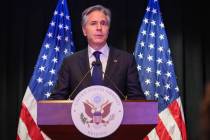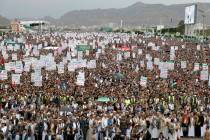Moscow shooting kills at least 40; Islamic State claims responsibility
MOSCOW — Several assailants burst into a large concert hall in Moscow on Friday and sprayed the crowd with gunfire, killing at least 40 people, injuring more than 100 and setting fire to the venue in a brazen attack just days after President Vladimir Putin cemented his grip on power in a highly orchestrated electoral landslide.
The Islamic State group claimed responsibility for the attack in a statement posted on affiliated channels on social media, which couldn’t be independently verified. It wasn’t immediately clear what happened to the attackers after the raid, which Moscow Mayor Sergei Sobyanin described as a “huge tragedy” and state authorities were investigating as terrorism.
The attack, which left the concert hall in flames with a collapsing roof, was the deadliest in Russia in years and came as the country’s war in Ukraine dragged into a third year.
The Kremlin said that Putin was informed about the raid minutes after the assailants burst into the Crocus City Hall, a large music venue on Moscow’s western edge that can accommodate 6,200 people.
The attack took place as crowds gathered for a performance by the Russian rock band Picnic. As Russia’s Federal Security Service reported 40 dead and over 100 injured, some Russian news reports suggested that more could have been trapped by the blaze that erupted after the assailants threw explosives. Health authorities released a list of 145 injured — 115 of them hospitalized, including five children.
Video from outside showed the building on fire, with a huge cloud of smoke rising through the night sky. The street was lit up by the blinking blue lights of dozens of firetrucks, ambulances and other emergency vehicles, as several fire helicopters buzzed overhead to dump water on the blaze that took hours to contain.
The prosecutor’s office said several men in combat fatigues entered the concert hall and fired on concertgoers.
Repeated volleys of gunfire could be heard in videos posted by Russian media and on Telegram channels. One showed two men with rifles moving through the venue. Another showed a man inside the auditorium saying the assailants had set it on fire, as gunshots rang out incessantly in the background.
Other videos showed up to four attackers, armed with assault rifles and wearing caps, shooting screaming people at point-blank range.
Guards at the concert hall didn’t have guns, and some could have been killed at the start of the attack, Russian media reported. Some Russian news outlets suggested the assailants fled before special forces and riot police arrived. Reports said police patrols were looking for several vehicles the attackers could have used to escape.
In a statement posted by its Aamaq news agency, the Islamic State group said it attacked a large gathering in Krasnogorsk on Moscow’s outskirts, killing and wounding hundreds. It was not immediately possible to verify the authenticity of the claim.
Earlier this month, Russia’s top security agency said it thwarted an attack on a synagogue in Moscow by a cell of the Islamic State group. Russian authorities also said that six alleged IS members were killed in Ingushetia in Russia’s volatile Caucasus region.
It was not clear why the group, which operates mainly in Syria and Iraq but also in Afghanistan and Africa, would stage an attack in Russia at this time. Over the years, the extremist group recruited fighters from the former Soviet Union who fought for the group in Syria and Iraq and claimed several attacks in the Caucasus and other Russian regions in the past.
As the blaze raged, statements of outrage, shock and support for those affected streamed in from around the world.
Some commentators on Russian social media questioned how authorities, who relentlessly surveil and pressure Kremlin critics, failed to identify the threat and prevent the attack.
Russian officials said security has been tightened at Moscow’s airports, railway stations and the capital’s sprawling subway system. Moscow’s mayor canceled all mass gatherings and theaters and museums shut for the weekend. Other Russian regions also tightened security.
The Kremlin didn’t immediately blame anyone for the attack, but some Russian lawmakers were quick to accuse Ukraine of being behind it and called for ramping up strikes. Hours before the attack, the Russian military l aunched a sweeping barrage on Ukraine’s power system, crippling the country’s biggest hydroelectric plant and other energy facilities and leaving more than a million people without electricity.
Dmitry Medvedev, deputy head of Russia’s Security Council, said that if Kyiv’s involvement in the attack on the concert hall is proven, all those involved “must be tracked down and killed without mercy, including officials of the state that committed such outrage.”
Mykhailo Podolyak, an adviser to Ukrainian President Volodymyr Zelenskyy, denied Ukraine’s involvement in the concert hall attack.
“Ukraine has never resorted to the use of terrorist methods,” he posted on X. “Everything in this war will be decided only on the battlefield.”
John Kirby, spokesman for the White House National Security Council, said Friday that he couldn’t yet speak about all the details but that “the images are just horrible. And just hard to watch.”
“Our thoughts are going to be with the victims of this terrible, terrible shooting attack,” Kirby said. “There are some moms and dads and brothers and sisters and sons and daughters who haven’t gotten the news yet. This is going to be a tough day.”
The attack followed a statement issued earlier this month by the U.S. Embassy in Moscow that urged Americans to avoid crowded places in the Russian capital in view of “imminent” plans by extremists to target large gatherings in Moscow, including concerts. The warning, which was issued hours after Russia’s top security agency said it busted a cell of the Islamic State group preparing an attack on a synagogue, was repeated by several other Western embassies.
Asked about the embassy’s March 7 notice, Kirby referred the question to the State Department, adding: “I don’t think that was related to this specific attack.”
Responding to a question about whether Washington had any prior information about the assault, Kirby responded: “I’m not aware of any advance knowledge that we had of this terrible attack.”
Putin, who extended his grip on Russia for another six years in the March 15-17 presidential vote after a sweeping crackdown on dissent, earlier this week denounced the Western warnings as an attempt to intimidate Russians. “All that resembles open blackmail and an attempt to frighten and destabilize our society,” he said.
Russia was shaken by a series of deadly terror attacks in the early 2000s during the fighting with separatists in the Russian province of Chechnya.
In October 2002, Chechen militants took about 800 people hostage at a Moscow theater. Two days later, Russian special forces stormed the building and 129 hostages and 41 Chechen fighters died, most of them from effects of narcotic gas Russian forces use to subdue the attackers.
And in September 2004, about 30 Chechen militants seized a school in Beslan in southern Russia taking hundreds of hostages. The siege ended in a bloodbath two days later and more than 330 people, about half of them children, were killed.



